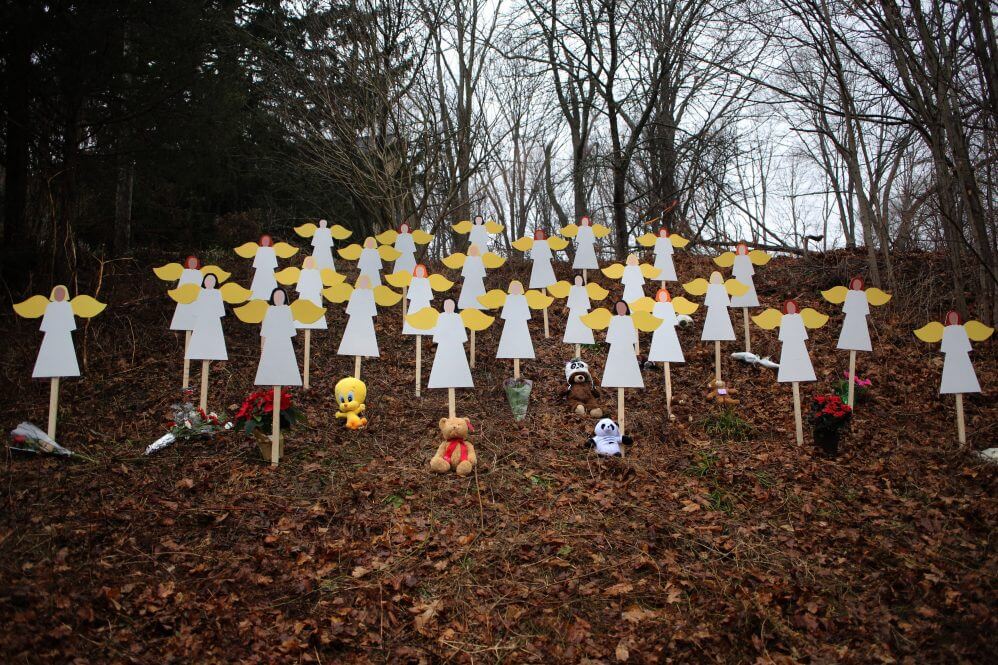
We’ve heard it again and again: If we weren’t able to pass gun reform after Sandy Hook, nothing will ever change.
While school shootings haven’t stopped, or even slowed, in the decade since Sandy Hook, progress has been made.
What Has Changed
- National Gun Safety Laws: Since 2012, three federal laws have passed under three administrations. Most recently, the 2022 Safer Communities Act provided more funding for violence intervention and mental health programs in schools.
- Public Opinion: In 2013, 81% of Americans supported background checks. Today, 92% support them. More than 1.2 million have taken the extra step of signing the Sandy Hook Promise petition demanding Congress pass universal background checks.
- Community Awareness: In a landmark study, the United States Secret Service found that every thwarted school shooting since 2008 was stopped because people who saw something said something. In four out of five school shootings, at least one person had knowledge of the attacker’s plan, but didn’t report it. Since 2012, more than 150,000 anonymous tips have been shared through Say Something Anonymous.
RELATED: Ten Years Later, the Heroes of Sandy Hook
What Hasn’t
- Background Check Loopholes: While 21 states, red and blue, expanded background checks on gun sales in the decade since Sandy Hook, Michigan still has a lot of work to do to keep our schools safe. Republicans have repeatedly blocked proposals to require basic safety measures for gun sales—however, when the new Democratic majority legislature starts up in January, a top priority will be common sense gun reform in Michigan. That includes universal background checks, safe storage, and red flag laws.
- The Number of Kids Killed by Guns: Each day, 12 children are shot and killed. Another 32 are injured. Guns are the leading cause of death for American children—five times more common than drowning. An estimated 4.6 million kids live in a home where at least one gun is kept loaded and unlocked.
- Short-Term Memories: Most shootings follow a predictable cycle—they happen, people are outraged, some send “thoughts and prayers,” and others call for change. Then, after a few weeks, life returns to normal—for everyone except the families of the victims, the students who watched their classmates being killed (and lived through a worst-nightmare experience), and the communities ripped apart by mass murder.


VIDEO: Trump isn’t the only republican facing charges for alleged financial crimes
https://www.tiktok.com/@gandernewsroom/video/7361494909938978090 A whole lot of Michigan Republicans and lobbyists are facing criminal charges for...

VIDEO: It’s expensive to be poor in Michigan
https://www.tiktok.com/@gandernewsroom/video/7361154790300060974 Ever heard of predatory payday loans? Here’s how new laws could help protect...

Here’s everything you need to know about this month’s Mercury retrograde
Does everything in your life feel a little more chaotic than usual? Or do you feel like misunderstandings are cropping up more frequently than they...

The ’Gander wins multiple 2023 Michigan Press Association awards
MICHIGAN—The ’Gander Newsroom has earned multiple awards in the 2023 Michigan Press Association Better Newspaper Contest. The awards were announced...

Michigan Republicans ask Supreme Court to restrict medication abortion access
A lawsuit supported by Republicans could disrupt access to the most common form of abortion—even in Michigan, where reproductive rights are...






